So I finally finished re-reading Ishmael (by Daniel Quinn). Now that I've finished it, I can't really remember why I wanted to re-read it. Or, rather, I remember why, but I also remember why it frustrated me so much the first time I read it. It frustrated me for the same reasons Al Gore's presentation on climate change (which I saw in St. Paul a couple months ago) did. It bombarded me with compelling evidence that the way humans have been living on this planet has put us on a path to certain extinction, and yet it offered very little in the way of ideas for what I personally (or people, in general, on a local, grass roots scale) can do to help reverse the situation.
At least Gore offered some hope by asserting that while there's perhaps little we can do about population explosion, we do at least have the knowledge and the technology to do something about the harmful emissions problem (the emissions that are not just polluting our air but also changing our climate in a way that's causing dramatic events and subsequently adversely affecting animal species all over the globe). It's simply a matter of convincing our politicians and industry leaders to use that technology to effect the change. (Obviously that's not exactly "simple.")
Ishmael focuses not so much on pollution and emissions, but on overpopulation and the root causes of it (which go way back to the beginning of the agricultural revolution and also relate to the cultural myths we've absorbed since birth and the way in which they've shaped our perceptions). It picks apart commonplace assumptions and challenges you to think differently about the world and humanity's place within it. It's a very interesting read, but it's depressing as well, because it implies that we are doomed to keep going on the same self destructive path and there's little if anything we can do about it. If there is a solution, as Ishmael (the half-ton gorilla who is the "teacher" in the book) sees it, it is essentially to stop trying to control the environment and to trust in "the gods" to determine our fate.
Perhaps it's because I'm not a very religious or spiritual person, but somehow that answer is just not enough for me. I respect the suggestion that Western cultures leave indigenous people alone and stop trying to convert them to lives of agriculture and technology, and I agree that our efforts to control our surroundings and make life as comfortable as possible are directly responsible for the current state of the planet. But any real and measurable change (as Ishmael--or Quinn--sees it) will rely on an enormous culture shift that, unfortunately, will not be an easy sell to anyone I know. I guess I wanted more in the end than "let go and trust in the gods." Maybe that's not fair, however. Maybe Quinn's point was not that only "the gods" have the answer, but just that none of us really knows the answer. Just because you raise a question doesn't mean you're required to answer it. If there were an easy solution, obviously someone would already be implementing it. Maybe the important part is simply to start asking the questions.
Incidentally, I first came across this book back in college, when a roommate of mine was assigned to read it for a class. She was curled up on the couch with it when I came home one day, and I asked her if she was doing "school reading" or "fun reading." She pointed to the tagline on the cover and replied, "It says it's an adventure of the mind and spirit, so maybe it will be fun!"
I do think that Ishmael is worth the read, but I wouldn't necessarily say the adventure is "fun." It's not a difficult read, and it's not very long (despite how much time spanned between when I first pulled it back off my bookshelf and when I finally finished it this week). But it is, as I said, frustrating, because of the dismal outlook to which it points.
So now I'm shifting back to light reading again for a while. Next in the queue is Shopgirl, because I'm curious if Steve Martin is actually a skilled writer and because I found it for $4 in the used books section at the Har Mar Barnes & Noble last week and figured that was as good an excuse as any to read it. I also decided I wanted to read it before the movie version hits theaters, though I've realized it's already too late to avoid having the movie affect my reading--I can't help but automatically picture the characters as Claire Danes and Steve Martin instead of letting my imagination do the work.
My $4 copy came with a series of teeth marks on the cover for no extra charge. I'm trying not to think about who--or what--was snacking on my book before I got my hands on it. As it's only 130 pages, I'm sure I won't have to think about that for too long.
Saturday, October 01, 2005
Subscribe to:
Post Comments (Atom)

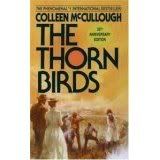
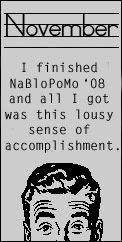

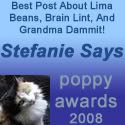

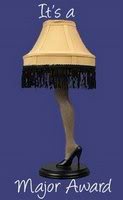
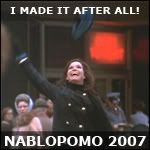



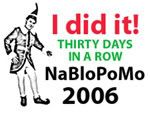

1 comment:
I too just re-read Ishmael, and while I agree that it is a bit open-ended about 'what to do' - is it really an author's job to tell you what you should do? If he makes you think, and further makes you want to act, then that's quite a lot already.
Anyway, I had some thoughts on the book as well, thought you might want to take a look: http://www.perival.com/blog/?p=106
Post a Comment